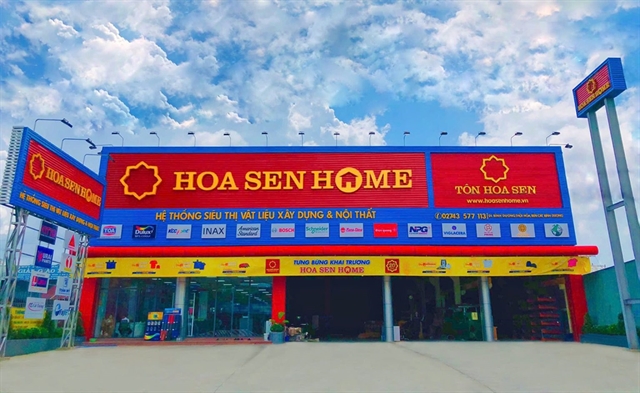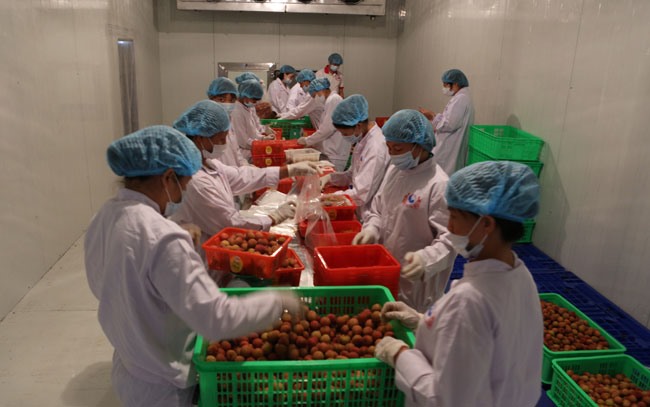 Economy
Economy

 |
| Workers process lychees for export at the Red Dragon Company in the northern province of Hải Dương. — VNS Photo Trương Vị |
HÀ NỘI — Though Việt Nam’s fruit and vegetable industry is growing, its exports still account for less than 1 per cent of the global market, indicating the need for the processing industry to upgrade its facilities and practices, experts said at a seminar on Tuesday in Hà Nội.
The Việt Nam Vegetable and Fruit Association, Rieckermann Việt Nam and the Ministry of Agriculture and Rural Development (MARD) co-organised the event to discuss the industry’s challenges and opportunities. The sector is growing quickly, seeing increases in cultivation area, output and export value in recent years, said Nguyễn Như Cương, Deputy General Director of the Plant Cultivation Department under the MARD. In the first 10 months of 2017, Việt Nam’s fruit and vegetable export value reached US$2.48 billion, an increase of 47.3 per cent over the same period last year, Cường said.
Besides China, the largest importer of Vietnamese vegetables and fruits, other high-demand markets include the US, South Korea, Netherlands, Malaysia, Taiwan, Thailand, Singapore and Australia. The global export value of vegetables and fruits has exceeded US$200 billion annually since 2011. Cường argued that Việt Nam has not yet met its potential.
“Việt Nam is mainly exporting fresh fruits with a short storage time due to lack of advanced preservation technology, so the value added is low. Not to mention that the country’s fruit and vegetable exports are also affected by many technical barriers, such as sanitary conditions,” he added.
Other challenges facing the industry include small-scale and segmented production, low quality of fruits, low productivity and out-dated processing technology.
According to experts and enterprises at the seminar, processing technology is not sufficient to meet domestic and international demand. Firms should apply new technology in production and invest in advanced production lines to increase efficiency and quality assurance.
At the seminar, Rieckermann Vietnam, an industrial solutions provider, introduced two advanced technologies to help Vietnamese businesses gain an advantage in the fruit processing market. The products are a tropical fruits processing technology and a juice treatment technology.
According to Cường, though Việt Nam has identified fruits and vegetables as a potentially strong industry, there were many shortcomings to fully exploit. The whole sector needs to continue to focus on promoting the application of science and technology for frozen fruits, canned fruits, dried fruits and fruit juices to increase the value of production, expand the market and increase export turnover, he said. — VNS